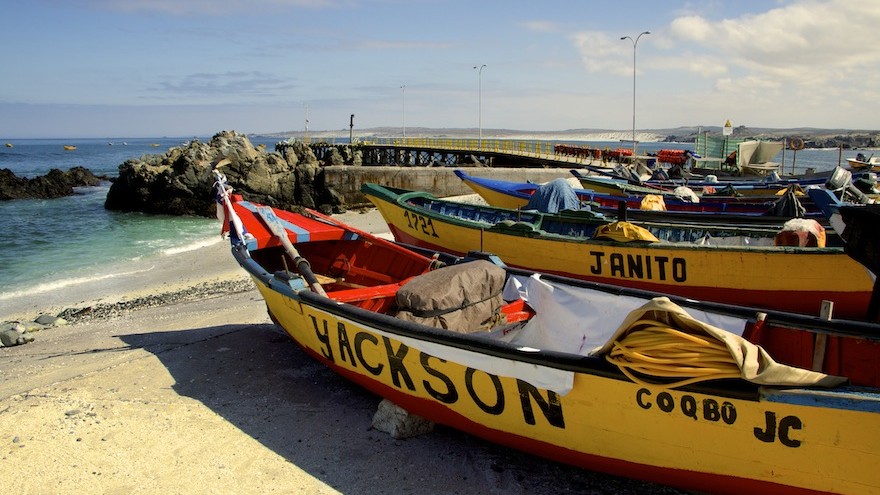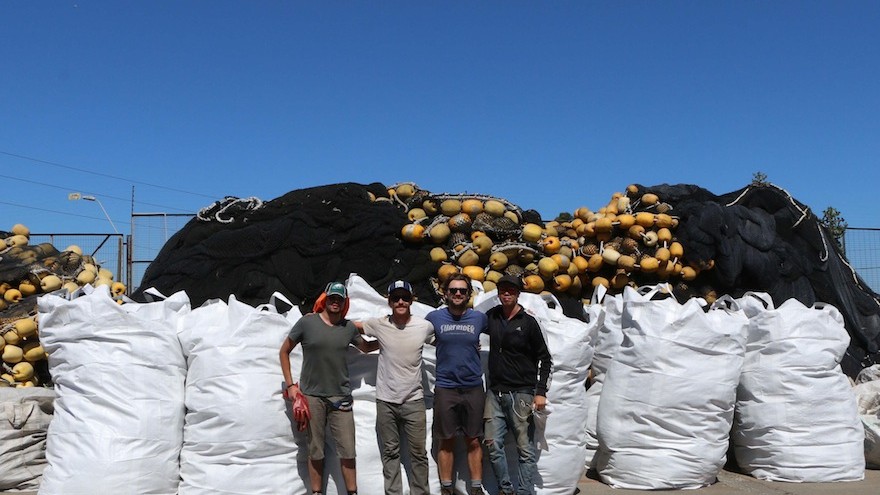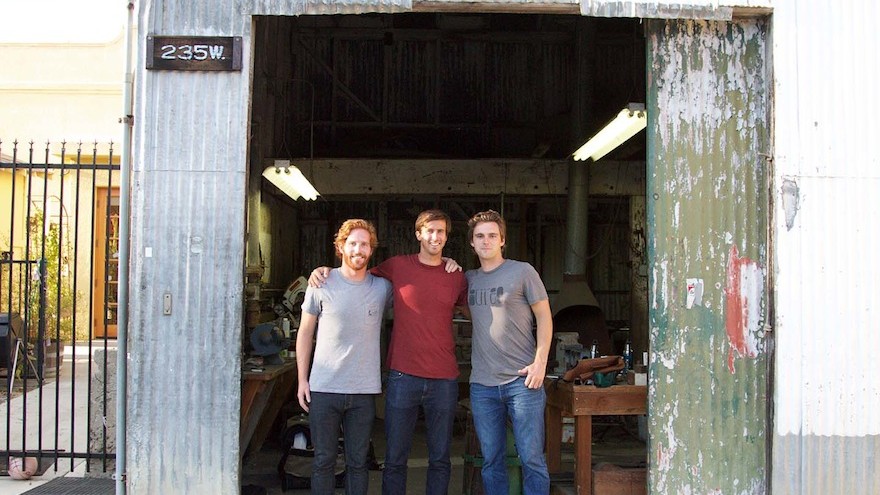According to the United Nations, more than 10 per cent of plastic waste in the ocean comes from discarded fishing gear. This litter is harmful to ecosystems and marine wildlife and is a serious global issue. On the coastline of Chile, the small team behind Bureo are helping to clear some of these old fishing nets and using the material to make skateboard decks.
Bureo’s three founders – David Stover, Ben Kneppers and Kevin Ahearn – began working with the Chilean fishermen in 2013 after deciding that something had to be done about the abandoned nets.
“We didn’t see a solution,” says Stover. “It makes up 10 per cent of ocean waste but there are no recycling options.”
The team set up a programme called Net Positiva in late 2013. Fishermen are encouraged to drop off their old, worn-out fishing nets at collection points in exchange for a payment for the material by weight. Bureo also works with local families who salvage the nets off beaches.
The old nets are then transported to a warehouse, sorted, shredded and melted down, before they are made into nylon pellets and injection-moulded into Bureo’s signature fishscale-patterned skateboards. A single board requires 30 square feet of net.
Their debut board, the Minnow, is a cruiser board – “made for surfing the streets,” says Stover.
Bureo, a word that comes from the native Chilean language meaning “waves”, received seed funding from StartUp Chile and IDEA, Northeastern University’s venture accelerator fund. They have also received support from Patagonia’s $20 Million and Change Fund, which was set up by Patagonia founder Yvon Chouinard to support entrepreneurs who are “working with nature rather than using it up”.
Bureo is now looking to extend Net Positiva to fishing communities around the world, which will broaden the reach of its wave of positive change.










